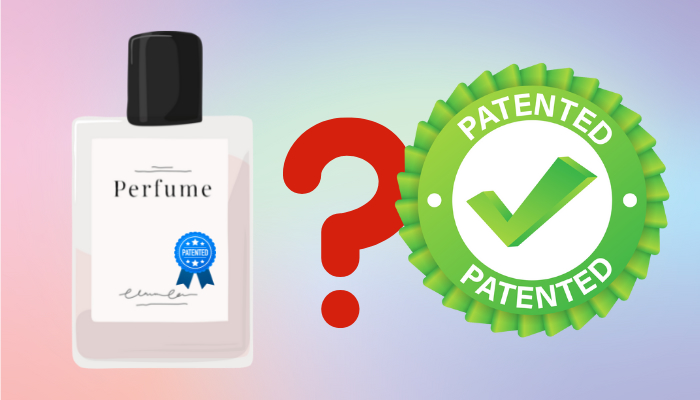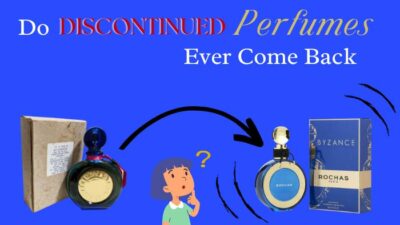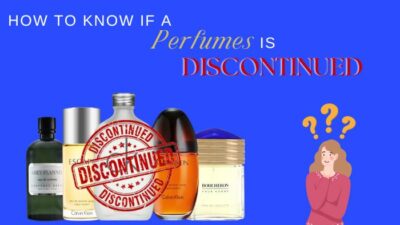Growing and sustaining your products or brands can be challenging in this world of continuous competition. Like most other products, this applies to perfumes.
Now, it is no big secret that the fragrance industry is full of confidentiality. In fact, it has been like this since the very beginning of the industry’s inception back in the sixteenth century.
However, in the past few decades, advancements in science have introduced different technologies that make it very easy to separate and identify the different components of perfume.
This gives rise to the very important question, can perfumes be patented?
If you are looking for that answer, you are in the right place.

Can Perfume Or Fragrance Be Patented?
No, perfume or fragrance cannot be patented. The fragrance itself and the method of preparing perfume or fragrance cannot be patented.
So, how does the perfume industry protect its intellectual property? They can do this by patenting the composition of their fragrance.
This means that even if you compose a unique scent, you cannot patent the scent. But instead, you can patent the formula or composition that you use to produce that specific scent.
However, most perfumers, including the big ones, are hesitant to get patent protection for their fragrances.
This is because they have to disclose their top-secret formula to get patent protection, but the patent protects them for only 20 years.
Quickly check out our post on ScentBox- Is ScentBox Legit?
Even though 20 years may seem like a long time, for the perfume industry it isn’t because time and longevity add more value to fragrances.
Can Perfume Be Trademarked?
Now that you know perfumes cannot be patented – can perfumes be trademarked?
Well, yes, even though you cannot patent perfumes, you can trademark perfumes.
If the fragrance of concern is very popular and successful, trademarking it may be a good option.
If the aroma of your perfume is one that distinguishes you or your company as the manufacturer of the perfume, you may be able to protect it by registering it as a trademark.
And for that you have to send a sample of the perfume to the agency that handles trademarks in order to protect the aroma of your perfume by registering it as a trademark.
However, if it isn’t a “signature” scent, then getting a trademark may be difficult as well.
Nonetheless, I must mention that you can also trademark the name of your perfume. This will prevent other companies or knock-offs from using the same name and selling their perfumes.
You can also trademark the perfume bottle, which will prevent other brands from copying the same, unique bottle design for their own fragrances.
Have some time to spare? Check out How To Pack Perfume Bottles?
How does a Trademark differ from a Patent?
Well, patents prevent other people from manufacturing or selling an invention, whereas trademarks protect the words, phrases, symbols, logos, or other devices used to identify the source of goods or services from being used by other businesses that are in direct competition with the owner of the trademark.
Can Perfume Have Copyright?
As per the rules of the High Court, if the scent of your perfume is original and unique, it can have copyright protection. Despite being only perceptible through the nose, the fact that it is perceptible makes it copyrightable.
So, even though the perfume is not copyrightable, the scent of your perfume is.
The explanation is that a fragrance alone is too volatile and dependent on the surrounding environment. It is also very individualized.
On the other hand, a scent depends on a specific mixture of ingredients and is thus protected by copyright.
Which Parts Of A Perfume Can Be Patented?
Now, given that fragrances cannot be patented themselves, what can different companies and brands do to reinforce their legal rights and protect their perfumes from being copied?
The Composition Of The Fragrance Can Be Patented
Well, first and foremost, they can patent the composition of their fragrance. In fact, there is a dedicated class, named Class 512, on the USPTO patent system that is devoted to patented perfume compositions.
Nonetheless, since the patent is provided for only 20 years, and the secret formula has to be disclosed to get the patent for only 20 years, most perfumers are reluctant to get one for their fragrances.
Since patent applications become available to the public not long after their approval, the confidential ingredients become public as well.
So, after 20 years, anyone will be able to duplicate the composition and produce it on their own.
So, most of the times when the fragrances are unique and difficult to reverse engineer, perfumers opt out of patenting them as that imposes the risk of revealing the composition to everyone.
Moreover, the process is lengthy and costly, which further adds to their hesitation.
But the composition is not the only part of the perfume that can be patented. Other parts of it can be patented and/or trademarked as well.
In a hurry? Check out How To Buy Perfume For Cheap?
The Perfume Bottle Can Be Patented
Besides the composition of the fragrance, you can patent the perfume bottle that holds the fragrance to prevent the design from being copied by others.
This can be done using a design patent, which protects the aesthetic appearance of an object, so it will protect the design of your perfume bottle.
However, to get the patent on the perfume bottle, you will have to qualify for a design patent, given that it is new and unique.
This type of patent is relatively easier to get, and once you get the patent protection, it will protect the design of your perfume bottle for 15 years.
Do You Need A Lawyer To Patent Your Perfume?
In cases involving patents and things relating to patents, the USPTO permits inventors to act on their own behalf. Therefore, you are allowed to create and submit a patent application for your scent if you are an inventor.
However, the patent office advises inventors to employ an attorney to draft and submit their patent applications despite doing it on their own being legal.
This is because the patent procedure is complicated and calls for a qualified expert who can pay attention to details.
Because of the numerous chemicals and complex manufacturing processes that go into a perfume, patenting one is sometimes challenging.
Even seemingly insignificant errors might result in the rejection of your patent application, costing you additional money.
So, it is advisable that you get yourself an attorney to secure all applicable intellectual property of your perfume.
Also, check out our separate post on How To Neutralize Perfume Odor?
Can You Get A Trade Secret Protection For Perfume?
Yes, you can get a trade secret protection for a perfume – and it is one of the smartest ways of protecting the formula.
Because a perfume’s whole component list must be disclosed in order to get a patent, many perfume manufacturers choose to have their products protected by trade secret law.
Without having to provide the contents of the recipe to the public, trade secret law enables perfume producers to safeguard their formula.
By using the Trade Secret Protection, the composition of the perfume can be kept a secret, which relieves perfume creators of the concern that someone else would use it to create a comparable, cheaper, and competitive fragrance.
In fact, the trade secret protection is used by many other companies, such as Coca-Cola, KFC, and more.
As long as a trade secret has economic worth, derives that value from being secret, and its owner takes reasonable steps to keep it that way, it can be protected indefinitely.
Conclusion
Our olfactory senses have a brilliant way of connecting us with certain brands, places, and people. So much so that the power of fragrance simply cannot be overlooked.
This is why perfume is priceless, and there is so much secrecy in the fragrance industry. Despite perfumes not being patentable, their composition can be patented.
There are also other routes you can take to protect the intellectual property that is a new and unique fragrance, such as trade secret protection and trademark.
Follow our guide to know Can You Leave Perfume In The Car?
So, what are your thoughts on this? Let me know in the comments below. I hope this article was helpful for you!



